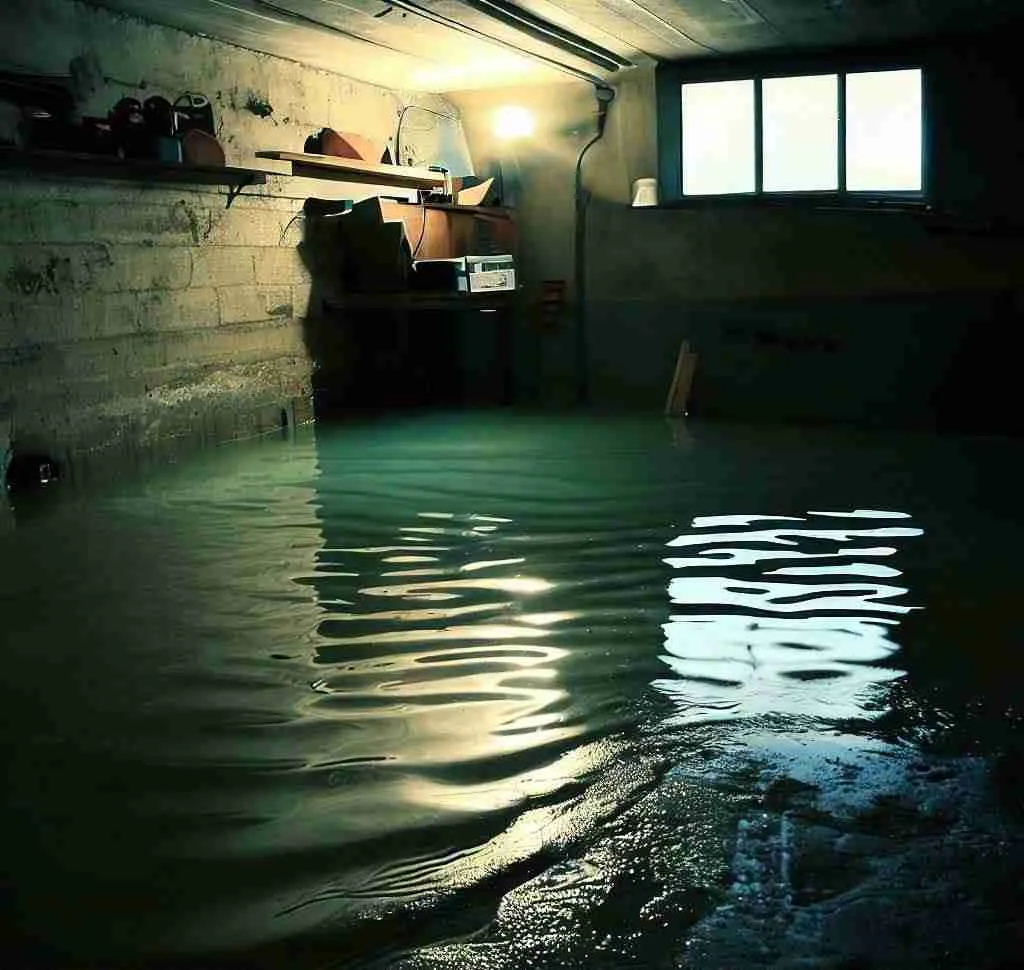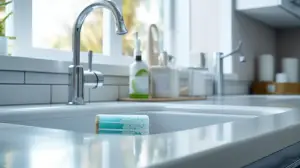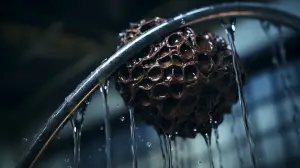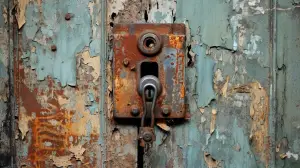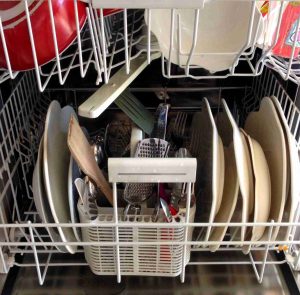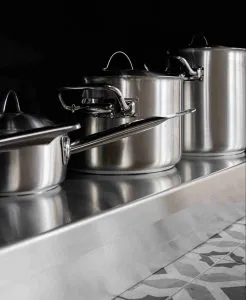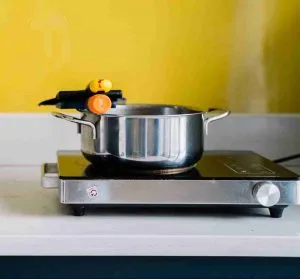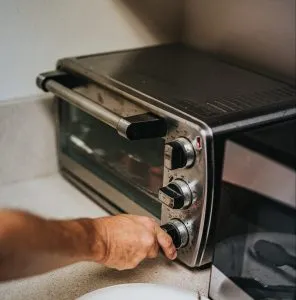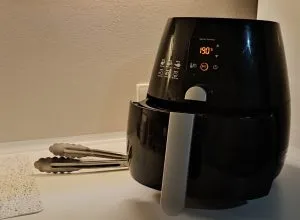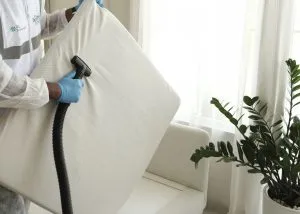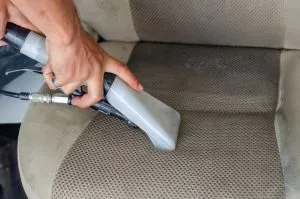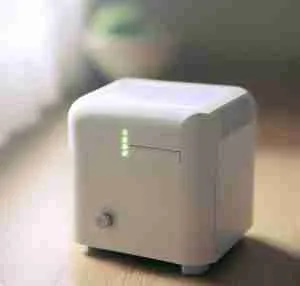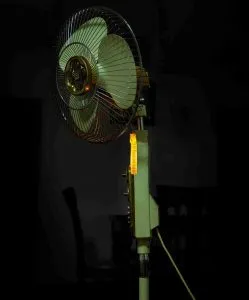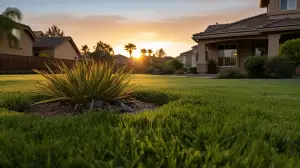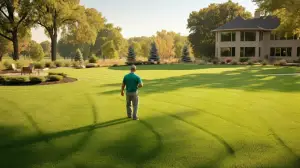Dealing with water entering your garage can be quite a nuisance. Did you know that most garages are not designed to completely withstand exterior elements like rainwater? Our comprehensive guide is tailored to help you understand the causes of this problem and provide effective solutions on how to keep water away.
Dive in, let’s fix that leak!
Contents
ToggleKey Takeaways
- Garage door and floor seals keep water out. Keep them new and fresh.
- A good fix for a leaky roof is to spot holes soon. Fill them in fast!
- Cracks let water into your garage but fixing them is accessible.
- Protect your garage by keeping the ground around it neat.
- Clean gutters stop rain from flooding your floors.
- Make sure you fit gutters with downspouts that lead far away from the base of the building.
- Making a trench drain will help take extra rainwater away from your garage, keeping it nice and dry.
- Prevent harm to belongings by waterproofing your concrete floors. Apply concrete sealers or specialized coatings to prevent water from seeping through the surface. This extra layer of protection makes the structure more resilient against leaks caused by natural occurrences such as heavy rainfall.
- To maintain high-quality, safe, and secure spaces, take measures such as using fans, mops, towels, and dehumidifiers while cleaning and maintaining all functional areas. This will prevent common problems caused by moisture accumulation and enhance the overall value of the space over time.
Understanding the Problem: Why Does Water Enter the Garage?
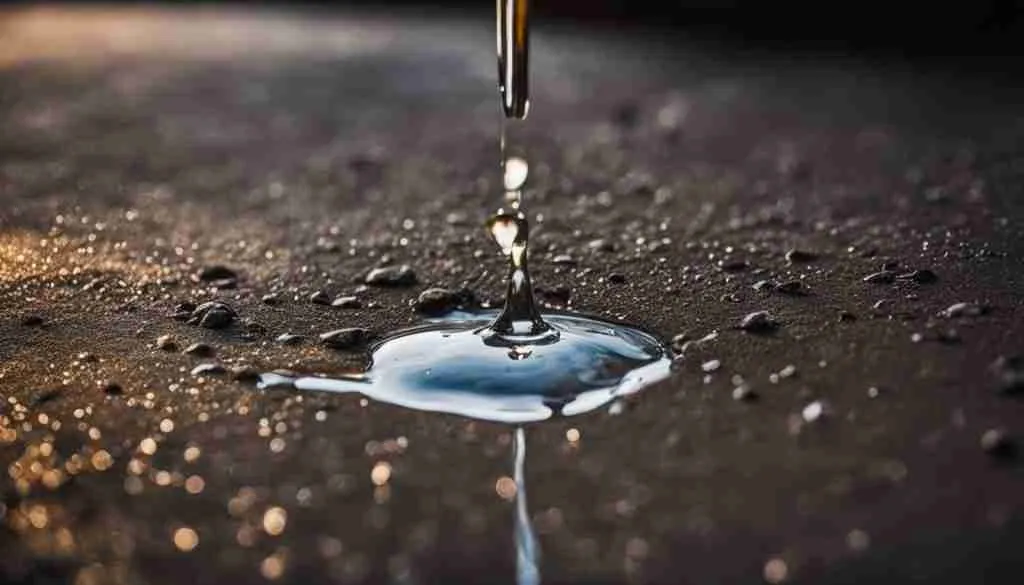
Garages get water when rain hits the ground near them. The water then flows in under the door. This is because most garages are not 100% waterproof. Water also gets in if your door or floor seals are old and torn.
These weak spots let both water damage and bugs into your garage.
Replacing these sealers stops water from getting in under the door. It’s a good deal as you spend less money this way, instead of fixing water damage later on!
Identifying the Source of Garage Leaks
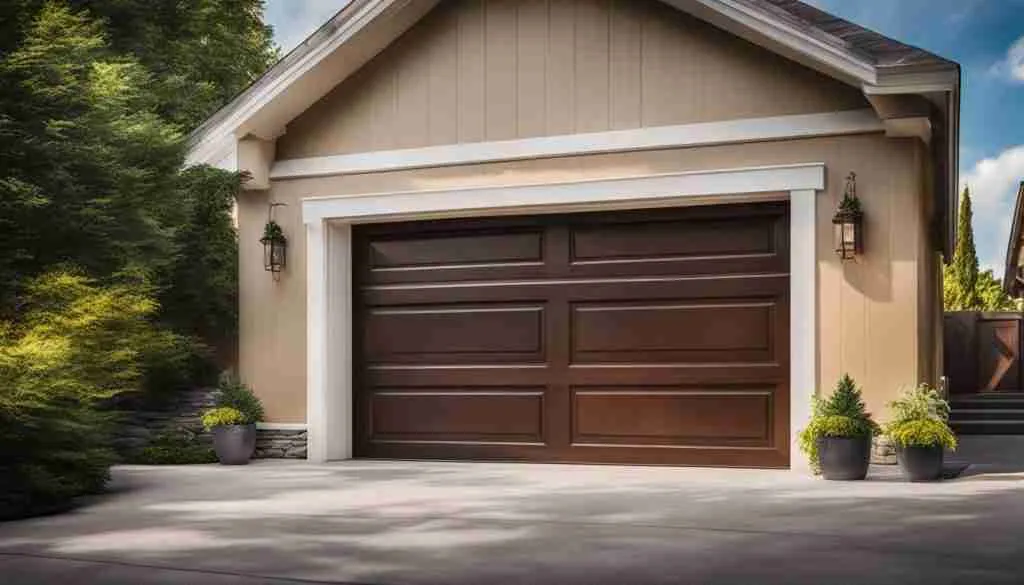
Let’s discover common areas that cause garage leaks such as issues with your garage door, roof compromise, and cracks in the concrete slab.
Garage Door Leaks
Your door leaks are a big issue. This happens when the door does not shut tight against the ground. It allows water to creep inside. If you see puddles of water near the entrance, this is a sign that you have this problem.
A broken seal on your steel door can also cause leaks. They keep out rainwater but wear out over time. To solve this problem, consider fitting good quality weatherproofing or getting a professional to install it for you.
Roof Leaks
Roof leaks let water into your garage. Snow or rain on the roof can seep through tiny holes. Your wall and floor get wet from this leak. Over time, the wet areas can harm the stuff kept inside.
It is key to keep an eye out for signs of roof leaks to prevent any kind of water damage. Fix any holes as soon as you spot them. If you see a big hole, call a pro for help right away! With proper care, you can stop roof leaks and keep your place dry all year round.
Concrete Slab Cracks
Cracks in the concrete slab of your garage can happen due to water damage. Water from leaks can seep into small spaces and cause these cracks over time. To stop this, you need to find and fix leaks fast.
You could do this by changing the old door and floor seals as soon as possible. Gutters on the roof also help keep rainwater out. For more protection, build a trench drain around your garage.
It helps move rainwater away from the building so it doesn’t cause any harm.
Effective Solutions to Keep Water Out of Your Garage
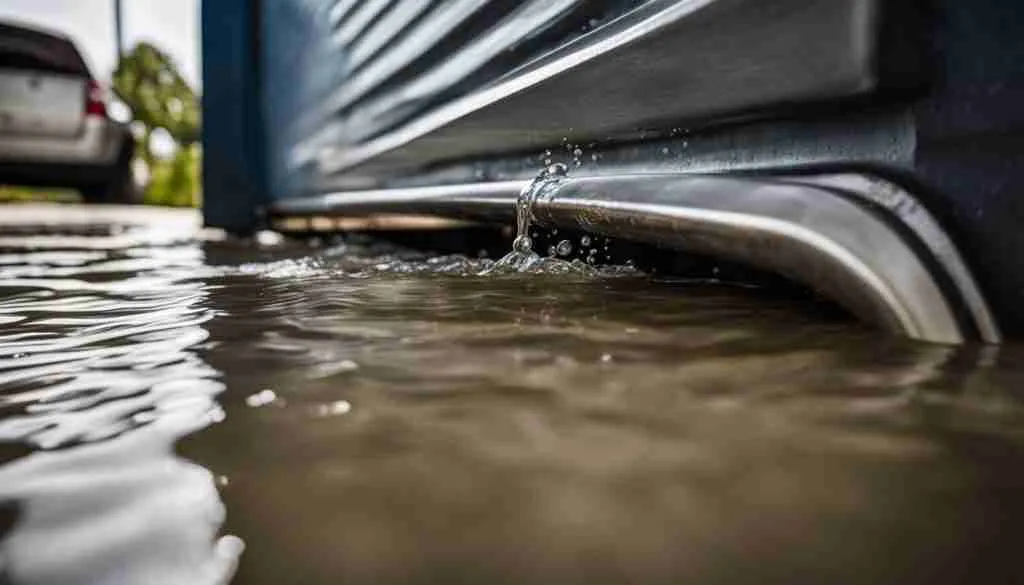
Explore practical and effective solutions to prevent water from entering your parking space, such as putting door and floor seals on, modifying landscaping, maintaining gutters, and waterproofing floors.
Let’s dive in to discover more about these strategies and keep our garages waterless!
Door and Floor Seals
Door and floor seals play a key role in keeping moisture out of your car stall.
- They form a barrier between the door and the outer world.
- They keep rain and pests away from your garage.
- The sealer helps deter water leaks at the bottom of the door.
- A seal can fit onto any kind of door, no matter its size.
- You can find many types such as vinyl, rubber, and more for sale.
- Over time, they can wear out or crack.
- Once this happens, they are less able to keep dampness out of the garage.
- The good news is that replacing old ones is not complicated or pricey.
- Often, you can swap them out on your own without taking a lot of time or effort.
- Putting in new door and floor seals helps to avoid issues like flood or paint damage on cars parked inside the garage during rainstorms.
Landscaping Adjustments
Making changes to your yard can hold water out of your garage. Here are some landscaping tips:
- Slope the ground away from the garage. This helps direct water away from the door.
- Plant a rain garden near, but not too close. These gardens soak up excess water in the ground.
- Put gravel or stones on paths near the garage. They stop mud and make it hard for water to get to the door.
- Keep plants and bushes a healthy distance from your garage walls. This space will limit how much water gets in your walls.
- Use rocks or bricks to make a small hill around your garage. The tiny hill acts like a dam and keeps rushing water back.
Installing Gutters and Trench Drains
Keeping moisture out of your garage is not a hard task. You can stop this by fitting gutters and trench drains. Below are the steps to do it:
- Fix a gutter system on your garage roof. This will keep rainwater from soaking your walls and causing damage.
- Make sure to clean your gutters often. Leaves and other bits can block them up.
- Connect your gutters to downspouts. These guide water away from the base of your garage.
- Set a trench drain right up in front of your garage door if you see puddles forming there often.
- The trench drain should be deep enough to collect water, but shallow enough so no one trips over it.
- Use an iron grate or PVC U-shaped channel for your trench drain.
- Fix the end of the drain far from the garage so that it doesn’t come back inside.
Maintaining Clean Gutters
Taking care of your gutters is key to stopping moisture from getting into your garage. Here are some steps for keeping your gutters fresh:
- Start by cleaning them out. This means taking out leaves, sticks, and any other bits that have gotten stuck.
- Check for breaks in the gutter. All parts should be tight and secure.
- Fix any loose screws or nails right away.
- Replace parts of the gutter that have big holes or cracks.
- Use a hose to pour water down your gutters. Watch where the water goes to make sure it’s flowing right.
- Keep tree branches cut back from your roof and gutters. This helps stop leaves and other trash from filling them up.
- Make sure gutters slope towards downspouts so water can flow away easily.
- Think about using covers on your gutters to keep trash out.
Waterproofing Garage Floors
Waterproofing the garage floor helps keep the garage waterless. Here are some ways to waterproof your garage floor:
- Use a seal: A concrete one can block water. It keeps the floor dry.
- Apply a coating: Waterproof coating offers another layer of protection. You put it over the seal.
- Fix any cracks: Cracks let in water. Fill them in with sealer too.
- Keep it clean: A clean floor is less likely to have damage. Sweep and mop often.
- Check for wear and tear: Seals do not last forever. Replace them when they get old.
- Hire a pro: Some jobs are big and need a pro’s help.
Additional Prevention Tips
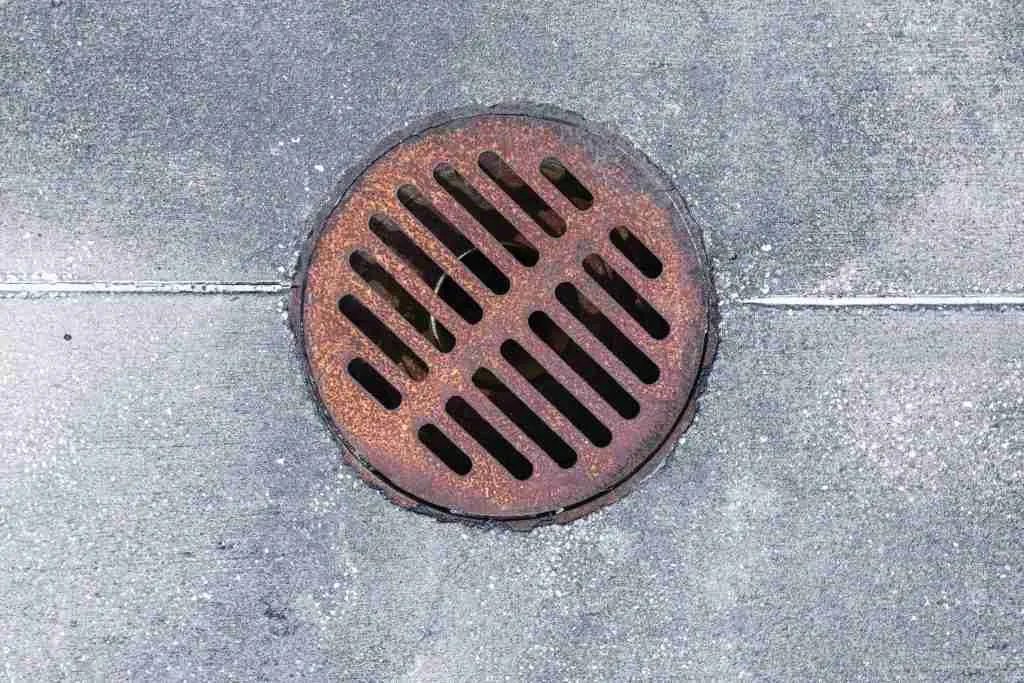
Prevent water from sneaking into your garage by following these extra tips.
- Keep your garage floor clean. Dust and dirt can make your garage wet and harm its floor.
- Put a fan inside the garage. It helps dry a wet floor fast and makes sure the air in the garage stays fresh.
- Use a squeegee to take out any water on the floor. Doing it right after you see the water is best.
- Replace old door sealers and weather strips often – they need to be in top shape to keep wetness away from your place.
- Cover concrete floors with waterproof paint or sealant to block water from soaking in.
- Check the height of the door. Make sure it’s high enough so that rainwater does not reach it, resulting in unnecessary leaks.
- Take care of your drains! If they get blocked with dust or leaves, water can build up and make a waterhole inside your garage.
- Adjust landscaping around the driveway slope along with placing trench drains properly which are crucial in preventing unwanted water from rushing towards the garage during heavy rain.
- Throw towels on small pools of water as a quick tool to soak up a flooded Garage before mopping them dry using mops this helps prevent further puddling and damage to belongings inside your valuable Garage space
- Use special insulating items like dehumidifiers or vent fans which keep the temperature under control further limiting chances of condensation build-up leading to high humidity levels which causes further moisture accumulation
Conclusion
You now know how to keep your garage dry. Go for a good seal, tidy gutters, and intelligent landscaping to block water. Also, keep the walls and floors waterproof. Say goodbye to flooded garages!
FAQs
1. How can I block water from coming into my garage?
To block water, make sure your garage door sealers well. Directing water away by grading the soil can also help.
2. What can I install to keep my garage dry?
You could set up a waterproof sealant on your garage floor or walls. Look into drainage systems like French drains and consider putting Feldco Garage Door Replacement for better protection.
3. Can professionals help with keeping the water out of my garage?
Yes! You could hire professional installers called product specialists who give free quotes and will aid you in home improvements such as leak prevention and installation of barriers against flooding.
4. Does sealing the driveway have anything to do with preventing flooded garages?
Yes, such a blacktop driveway prevents seepage from directing water into your integrated garage especially if there’s ground elevation within reach causing deterioration of seals over time.
5.How much work is required if leaks appear in an old structure most notably an 80+-year-old house?
Correcting leaks might mean installing sump pumps or troughs at numerous points around your property or silicone spill guards due to poor sealing causing deterioration over decades which must be addressed immediately.
6.Why should we prevent our garages from being damp during winter?
Preventing garage dampness in winter is crucial to avoid damage to stored items, prevent mold growth, and maintain a healthier living environment.

